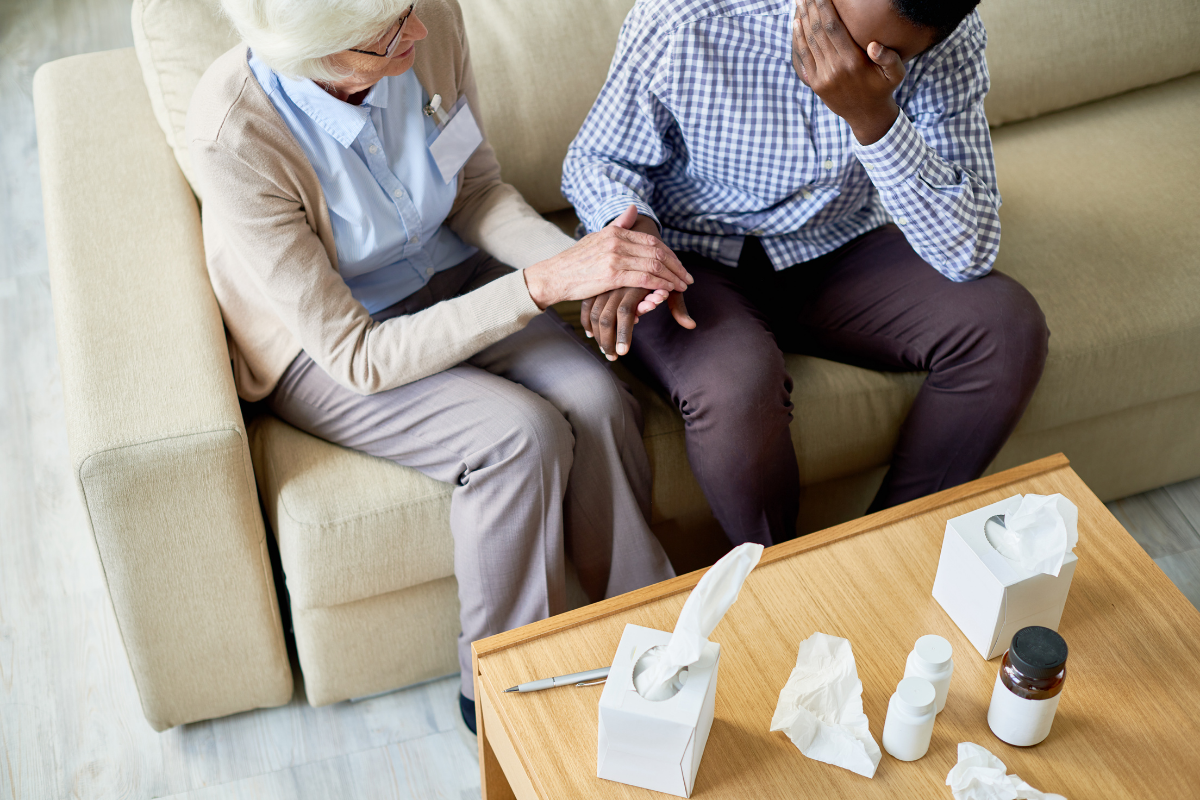Supporting Patients with PTSD After Intubation

The 41-year-old patient doesn’t remember much about her arrival at the hospital emergency room. All she knew was that she headed there with a fever and a bad cough that was getting worse.
When her family tells the story, you can imagine the scene playing out in a hospital drama: their arrival at the hospital, the diagnosis of pneumonia, the rush to intensive care where she was placed on a ventilator to save her life. They remember the long hours, days, and weeks of worry, setbacks, and incremental steps to recovery.
That’s not how the patient remembers it. She thought she was being kidnapped.
Studies show that eighty percent of patients placed on a ventilator in the ICU suffer from ICU delirium, where their illness, sedatives, narcotics, and treatment are swirled into false, often terrifying, memories that don’t always go away when their treatment succeeds. False memories of assault and imprisonment are common.
Much like soldiers who return home haunted by combat trauma, ICU survivors often experience post-traumatic stress disorder (PTSD) with terrible nightmares, flashbacks to real and imagined experiences, hyperarousal, and emotional numbing.
Patients returning home will often need continued treatment for both their physical recovery and their mental and emotional needs stemming from PTSD after intubation.

Treatment for PTSD after Intubation
Reassuring reports from family members and doctors about their time in the hospital can help patients with PTSD from intubation sort fact from fiction. To help with this, some hospitals now create ICU diaries that report each step of the treatment, so the patient can review it later to help reconstruct the true story of their illness and care.
Patients should work with their physicians to find the right combination of lifestyle adjustments, medication, behavioral therapies, and psychological support to treat anxiety, depression, and PTSD after intubation. While adequate sleep and a healthy diet are a good start, patients may need the support of a psychologist or psychiatrist to fully address their symptoms.
Crossroads Hospice & Palliative Care provides physical, emotional, and spiritual support to patients with serious and terminal illnesses. Contact us at 1-888-564-3405 to refer a patient to hospice or palliative care.
If you found this information helpful, please share it with your network and community.
Copyright © 2021 Crossroads Hospice & Palliative Care. All rights reserved.




